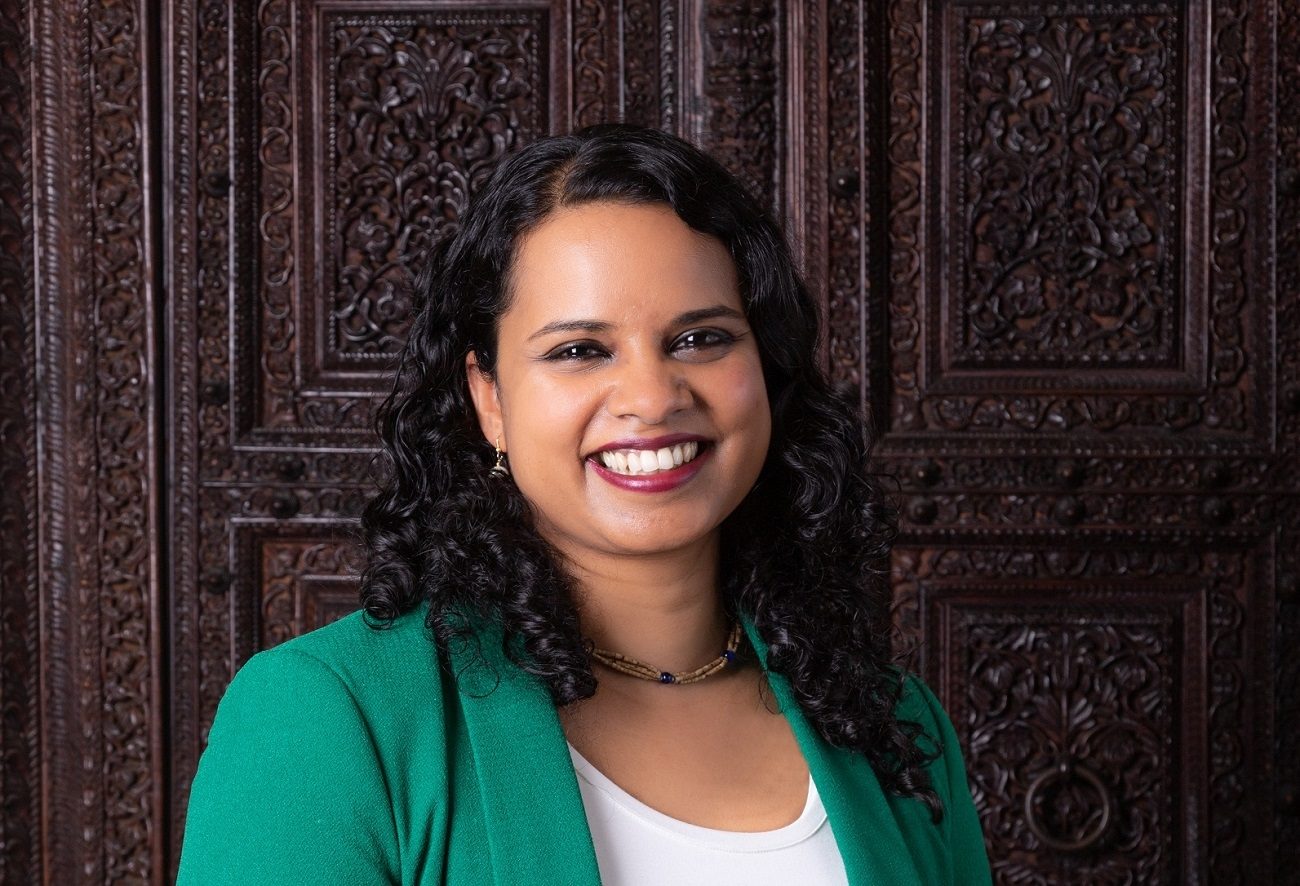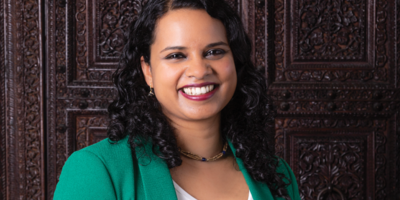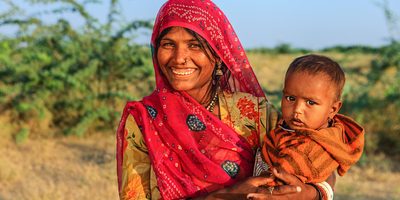
Dr Shobhana Nagraj: improving and empowering rural health
Meet Dr Shobhana Nagraj, DPhil student and Honorary Clinical Research Fellow in Maternal Child Health.
How long have you been working at The George Institute?
I have been a full time DPhil student at the George Institute since October 2017.
What is your professional background?
I have quite a varied professional background! I qualified from University College London as a medical doctor, as well as completing a degree in Medical Anthropology. I originally trained as a Paediatric Surgeon, and have been a Member of the Royal College of Surgeons for over a decade. I have always had a passion for global health, and during my surgical training I decided to work in Malawi, Africa for a few months. This had a transformative effect on my career. I worked within the department of paediatric surgery at a Government hospital, and also had the opportunity to tour the district hospitals in Southern Malawi teaching basic surgical skills. During this time, I realised the importance of the social determinants of health and the need for robust health systems and improved quality of care in rural settings. After returning to the UK, I retrained as an Academic Clinical Fellow in Primary Care at the University of Cambridge, where I worked within the Health Services Research team. I completed my training as a primary care physician and also completed an MPhil in Primary Care research methods, analysing a big data set on quality of primary care in the UK.
Throughout my training in primary and secondary care, I have had the opportunity of working in rural India with community health workers. These experiences really fuelled my interest to pursue my current DPhil in the field of maternal child health in Oxford.
What attracted you to working at The George Institute?
My friend sent me a link to a BBC documentary on the George Institute’s SMARThealth mobile application – which was then being used by community health workers in rural India to screen for mental health disorders. I was immediately interested in the technology and particularly how it was being used. Having worked and lived in rural India over several years, I realised the value this approach might have for empowering community health workers, and the transformative power that technology could have in the field of Maternal-Child health (my area of interest). After seeing the BBC documentary, I contacted The George Institute and met with the Principal Director; Professor Robyn Norton, to find out more and explore developing this technology for women’s health.
What are you currently working on?
I am adapting the existing SMARThealth mobile platform in order to provide clinical decision support to community health workers working with pregnant women who have an increased risk of future heart disease and stroke (cardiovascular disease) in rural India. We know that women who have hypertension, diabetes and anaemia during pregnancy have a heightened risk of future cardiovascular disease (which is the leading cause of death in women in India). The rates of hypertension and diabetes in women in India are amongst the highest in the world, and typically have an earlier onset than in other populations, which is why early detection and screening is particularly important in this population. Over two thirds of the Indian population live in rural areas, where access to healthcare and screening and follow-up may be more challenging. In my experience, community health workers are the key to providing continuity of care in these settings. My work is intended to empower community health workers and primary care physicians to work together to detect, refer and manage pregnant women who are at increased risk of heart disease and stroke. The technology is a tool to achieve this collaborative approach, and to strengthen the health system in rural areas.
What is a recent highlight?
Wow – there are so many! I would have to say two come to mind – I recently visited the rural villages in India and met community health workers, women from the villages, local doctors and laboratory staff. The hospitality was overwhelming! I really enjoyed learning about their daily lives and about the health system. A real highlight was when the community health workers all decided to cook fresh roti (Indian bread) on an outdoor stove for me for lunch – it was absolutely delicious!
The other huge highlight has been receiving the MRC Clinical Research Training Fellowship, which has meant a huge amount to me in acknowledging the importance of this work.
What difference will this make to healthcare and why?
The postnatal follow-up of women with increased cardiovascular risk is not uniform or standardised in many areas across the world. Women in rural areas are often lost from the health system following birth of their baby, as the focus shifts to the newborn and wider family matters. Women are also less likely to seek help from doctors when they experience symptoms of heart disease. By engaging women into the health system earlier in their lives and encouraging continued engagement, we have the potential to detect heart disease and its risk factors earlier in life, and institute preventative measures. For many women in rural areas, antenatal care is the first point of contact for a woman with the health system. I am therefore using antenatal care as a window to engage women in the health system for their life long health.
India accounts for almost one quarter of the population of low and middle-income countries worldwide. Having a positive impact in reducing heart disease and stroke in women in rural India, will not only impact on women in India, but has the potential to impact the world.
Why do you enjoy working at The George Institute?
I work with great colleagues both here in Oxford and across the globe! I feel like I am part of something bigger than my immediate work.
To explain to people what I do, I say….
I work with community health workers in rural India to improve the life-long health of women and their children.
To unwind at the end of the day I….
Sing in an African Choir, do yoga, and eat chocolate…
My first job was….
I had a weekend job as a waitress at a busy café. This was one of the toughest jobs I’ve ever done! During the week after my studies, I also worked at a community centre for refugees in Brixton, London, running a homework club for children – mainly teaching English and Maths, until their parents returned from work to collect them. I became a part of the students’ and their families’ lives and it was an amazing experience to see the children doing well at school and gaining confidence!
My biggest achievement so far….
Getting the MRC Fellowship and being here at the University of Oxford and the George Institute for Global Health, doing my DPhil and performing work I love - which I hope will help women and children across the world one day!



